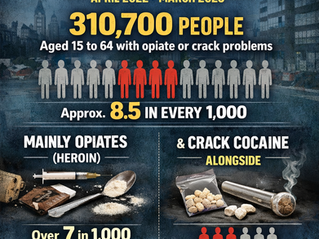Ethical Marketing Campaign for Addiction Treatment (EMCAT)
At EMCAT, we are committed to promoting ethical marketing practices in addiction treatment. Our focus is ensuring the well-being of those seeking treatment and advocating for transparency in marketing strategies. Learn more about the EMCAT Code.

Our Mission
The Ethical Marketing Campaign for Addiction Treatment (EMCAT) was founded by a coalition of dedicated individuals united by a commitment to enhance standards in addiction treatment marketing across the United Kingdom. Our mission is to develop, promote, and advocate for a specific code of conduct that governs ethical marketing practices tailored to the UK context.
We aim to foster collaboration among various organisations and individuals to affiliate and collectively maintain high standards in the ethical marketing of addiction services. EMCAT will actively identify and address, and where necessary, report any unethical or misleading advertising and marketing practices.
EMCAT operates as a network of former and current professionals in the addiction field, plus others with an interest in this field.

Unethical Practices in Addiction Treatment Marketing
Predatory and unethical marketing practices within the addiction treatment sector became particularly prevalent with the advent of Google and other search engines in the early 2000s. Search engines created a change in people’s behaviour, and instead of taking advice from healthcare professionals, or looking at the telephone directory, many people began to search online for advice about alcohol and drug problems.
Why this Matters?
Patient brokers often employ deceptive tactics to direct individuals into facilities with promises of high-quality care and success rates, sometimes without regard for the suitability or effectiveness of the treatment provided.
The commodification of addiction treatment exacerbates the problem, as some centres prioritise profit margins over the well-being of their patients. As a result, vulnerable individuals seeking help for addiction can be subjected to substandard treatment or even exploitation.

Our Goals
The Ethical Marketing Campaign for Addiction Treatment (EMCAT) aims to enhance ethical
standards in addiction treatment marketing through several strategic initiatives:
01
Code of Ethics Development:
We are committed to collaboratively drafting a comprehensive and voluntarily adopted code of ethics. This will involve engaging with key stakeholders within the addiction treatment sector—including provider networks, individual treatment providers, patient rights groups, and healthcare ethics experts—to ensure the code reflects best practices and addresses all pertinent issues.
03
Monitoring and Reporting:
EMCAT will highlight and act against dishonest marketing practices within the sector, issuing warnings to providers and taking further action to report these. We will prepare detailed reports on unethical practices, gathering credible evidence to inform our submissions to relevant regulatory bodies.
02
Advocacy and Engagement:
We will lobby for support and adoption of the code, promoting a positive approach to stakeholders who demonstrate openness to improving standards. This includes direct engagement with treatment providers, professional associations, health department officials, and politicians to secure their support for our objectives.
04
Networking and Collaboration:
Our organisation will connect with other organisations and advocacy groups sharing similar goals. We aim to network broadly, including attending industry conferences and workshops, to stay abreast of the latest trends and challenges. We will also seek support from foundations that promote patient advocacy and ethical business practices.
05
Education and Awareness:
To support our advocacy efforts, we will develop clear, compelling materials, such as case studies, evidence of marketing abuses, and the benefits of ethical practices. These materials will be disseminated through various channels, including digital platforms like social media, to raise awareness and gather support.
07
Formal Registration:
Looking ahead, we will explore the benefits of registering as a formal entity to enhance our operational capabilities.
06
Legislative Engagement:
We will study existing legislation to identify and correct abuses using existing laws and prepare for potential regulatory changes needed to support our mission.
08
Documentation and Reporting:
EMCAT will maintain detailed records of all activities and outcomes, producing an annual report to summarise our progress and impact.


How to Support EMCAT
Join our executive committee as a volunteer.
We need volunteers to help monitor activity in the addiction treatment sector, and report back to us about any concerning practices. Other types of volunteer activity are also helpful, such as updating our website, or conducting surveys, or assisting with social media.
Join our advisory board.
Our advisory board is open to new applicants. The commitment for advisory board members includes attending meetings, and reviewing the activity of the executive committee, and providing professional advice and guidance.
Become a supporter.
Supporters can donate to EMCAT, please contact us to find out more about how to do this.








